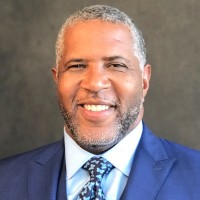Key Takeaways:
- Generational wealth is wealth assets passed down to future generations.
- A lack of wealth investments passed down within families in the Black community can contribute to the widening of the racial wealth gap.
- Black generational wealth can be built through stock market investments, entrepreneurship, homeownership and other real estate investments.
Lingering disparities from decades-long racial inequality and systemic racism are contributing to the Black-white wealth gap. This, in turn, causes the inability to build generational Black wealth.
Here, we explore family generational wealth and its importance. You will better understand generational wealth in the Black community and the barriers Black American families face with building wealth. We also cover Black wealth statistics, the importance of addressing the racial wealth gap and how to build Black generational wealth.
What Is Family Generational Wealth?
Family generational wealth consists of assets such as businesses, cash, paid education and medical expenses, real estate (including down payment assistance for young, first-time homebuyers), financial investments and other wealth accumulation passed down from one generation to the next. Family generational wealth can be passed down during life or after death.
Unfortunately, generational wealth can widen wealth gaps. According to one source, on average, white families can expect an inheritance close to $200,000, while the median inherited wealth for Black families is $100,000.
The Importance of Generational Wealth
Generational wealth helps create financial security for upcoming generations and upward social mobility for recipients. For example, consider a child going to college who had their tuition paid for by their parents, grandparents or other family members. Once they graduate, that wealth transfer toward the cost of their education can pay off — giving them an upper hand for higher-paying jobs over their non-college-educated peers.
Understanding Generational Wealth in the Black Community
The National Urban League releases an annual Equality Index comparing disparities between white and Black Americans. The 2022 index revealed the wealth equity gap has seen little progress since the first report was released in 2005. Black Americans possessed only 73.9% of economic, health, education, social justice and civic engagement benefits compared to white Americans in 2022. This is compared to 72.9% in 2005. This wealth equity gap contributes to the inability of Black American families to build Black generational wealth.
Merrill conducted a study around financial goals for affluent Black Americans and found that conversations about generational wealth, including inheritance and wealth transfer, typically do not happen in Black households. The study, performed through discussions and surveys in 2019, also discovered a 65% growth in affluent Black American households in the prior five years.


Get Industry leading insights from Robert F. Smith directly in your LinkedIn feed.
Get Industry leading insights from Robert F. Smith directly in your LinkedIn feed.
Barriers That Black Families Face to Building Wealth
There are several hurdles that Black Americans may endure while building generational Black wealth, including discrepancies in education, employment and housing.
Educational Disparities
Differences in higher education opportunities can broaden the racial wealth gap and affect the ability to build Black generational wealth. Student loan debt is an impeding factor in reducing wealth for Black American college graduates. Black American students, on average, accumulate more student loan debt than white students — approximately $24,000 in comparison to white graduates at $16,000. Additionally, according to the same data from 2019, Black families with a college education had less wealth than white Americans with high school diplomas. Student Freedom Initiative, an organization chaired by Robert F. Smith that redefines how college students pay tuition, assists potential student loan debtors with income-contingent funding options that can help close the racial wealth gap.
Systemic racism in education is another cause of education disparities. The education system in the U.S. has been steeped in policies and procedures that have impacted students from underrepresented communities. This includes unequal funding, racial achievement gaps and access to quality education.
Employment Inequities
Black Americans make up 13% of the U.S. workforce, and the average wage for Black American workers is 30% less than white Americans in the labor force. According to a McKinsey & Company report, Black American pay would be $220 billion higher annually if Black Americans experienced full parity with income as white Americans.
In terms of Black American entrepreneurs, Black business owners only acquire roughly 1.2% of the nearly $150 billion venture capital investments, according to the report from Synchrony Bank. Black-owned businesses and startups can help close gaps by bringing job opportunities and an increase in revenue to underrepresented communities.
Housing Discrimination
Lower home appraisals can lead to less equity being drawn from refinancing or selling a home. Building equity is building wealth. Home equity can be applied toward growing retirement funds, starting a business or building an inheritance. If the home is appraised for less, that reduction in value may be passed down to children or grandchildren, leading them to receive less intergenerational wealth. A report based on the U.S. Census Bureau data from 1980 until 2015 shows that homes in Black communities appraised for less than comparable homes in predominantly white communities.
Overall, discriminatory practices and laws based on race, including steering, have hindered homeownership most profoundly for Black Americans. These practices included lower loan approval rates, higher annual percentage rates (APR) and purchasing restrictions and policies — leading to fewer Black Americans owning homes. Shelley v. Kraemer, a 1948 Supreme Court case, and the Fair Housing Act of 1968 helped end these race-based covenants.
Homeownership data from the U.S. Department of the Treasury reported in the second quarter of 2022 that Black Americans owned homes at a rate of 45% compared to white Americans at 75%.
The Importance of Addressing the Racial Wealth Gap
Closing the racial wealth gap is important because it will help provide equal footing for Black Americans in the U.S. The racial wealth gap has halted the building of Black generational wealth because of systemic racism that has plagued the nation for decades.
Organizations and initiatives are working in predominantly Black communities to address disparities such as the racial wealth gap. For example, the Washington D.C. Home Ownership Assistance Program offers gap financing and interest-free loans that may help qualified individuals purchase a home. Programs such as this can help Black Americans make strides in the real estate market, seal the racial wealth gap and create generational wealth.
Southern Communities Initiative (SCI), co-lead by Smith, works to accelerate racial equity funding, programming and outcomes for the communities where approximately half of the Black U.S. population resides: Atlanta, Georgia; Birmingham, Alabama; Charlotte, North Carolina; Houston, Texas; Memphis, Tennessee; and Greater New Orleans, Louisiana.
SCI focuses on four main areas to help drive differential impact, including:
- Increasing digital access for low-income and minority households
- Providing access to capital through the modernization of CDFI/MDI systems
- Offering growth opportunities for Black-owned and other minority business enterprises (MBEs) through MBE entrepreneurship and supplier diversity
- Supporting education and HBCU workforce development by reducing student debt and promoting high-paying job opportunities
How to Build Black Generational Wealth
Several ways Black American families can build generational wealth include:
- Financial planning
- Entrepreneurship and small business ownership
- Real estate investment
- Stock market investment
- Financial literacy and education
- College savings account to deter student loan debt
- Homeownership
- Retirement planning
- Retirement savings
- Life insurance
- Estate planning
Stay up to date with the latest from Robert F. Smith and the importance of procuring Black generational wealth by following him on LinkedIn.






